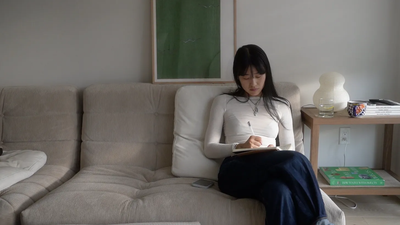WFH is a TRAP

I’ve been working from home for over 6 years now and the biggest lesson that I’ve learned is that working from home is a trap. We’re lured in by the glitz and the glamour aka rolling out of bed into “the office” with no commute in sight. What a dream.
Somewhere between the glittering idea of knowing we can work from anywhere and the added flexibility we had with our schedule, we put on a pair of rose-tinted glasses and never took them off.
I had the blessing of being able to work from home long before COVID made it the only way to work. This meant I had nearly 3 years of “WFH training” before the rest of the world were forced to get with the idea. I also entered this role by choice. For this reason, I never lost sight of the fact that remote-working is a blessing but also it’s own type of responsibility rather than being a right.
Recent research shows that 98% of surveyed workers would like to work remotely at least a couple days per week. 57% said that they would look for a new job if their current company didn’t allow remote work. My reaction? IN THIS ECONOMY? With even the biggest players in different industries conducting layoffs every single year, it’s hard to believe people would leave their jobs just because they aren’t able to work remotely.
The big issue many people faced after covid-rules started to lift was that companies were requiring people to go back into office. In came this huge wave of unhappy and dissatisfied employees who couldn’t understand why this had to be. Young people who knew only of remote-work, mom’s who took back the responsibility of taking care of their kids, and digital nomads who had already planned out all of their travel plans for post-covid.
What people had quickly forgotten, when they were forced to make the change in the first place, was that being in office has it’s own unique set of benefits. Genuine friendship and trust is built through seeing each other and spending time together. Visibility at the office contributes to your overall performance score. Collaboration happens more effortlessly when you’re in a room together. Maybe you’re thinking to yourself now that those things don’t matter to you. That your quality of work is what dictates your performance score and everything else falls below your priority of self-care and freedom!
I’m sorry to tell you that you’ve also fallen through the hidden trap-door that is WFH.
The pros of WFH
I’m not say that WFH doesn’t have amazing benefits. I call it a blessing for a reason. Besides the flexibility, the extra hour or two you’re saving from the commute, and the freedom to work from anywhere, remote working has other benefits as well.
35% of remote employees feel more productive when working fully remote. 71% of remote workers said remote work helps balance their work and personal life.
It’s no secret that increased autonomy, employee trust, and flexibility typically equals a happier and more productive workforce. When a company has a healthy work culture that supports workers to take care of themselves, you’ll likely find that the overall company output improves. Afterall, your output is only as good as your input.
How WFH is a TRAP
However, no matter how spectacular all of this sounds, we live in a world where there’s no such thing as perfection. Let’s start with the flexibility aspect. With flexibility comes an increased requirement for individuals to structure their own time. With no physical office hours to keep you in check, how many days of the week are you finding yourself rolling to your desk after your “official working hours” have started? Besides having additional hours of non-productivity, some workers are also finding it tough to create separation between work and personal life.
When your “office” is just a room away from your bed, your living space, your spaces meant for relaxation, it’s easy to unknowingly put in extra hours as well. It also becomes more difficult fully take your mind off work when your day has ended. Unless you’re very disciplined about where in your home you can do work (and where you shouldn’t), the lines will inevitably start to blur.
Looking at the stats again, 69% of remote workers have actually reported increased burnout from digital communication tools. We already live in a world of hyper-connectivity and everything being constantly “on”. We wake up notifications, emails, and other communications that collected overnight. It’s one thing to choose to use digital communication tools to connect with your loved ones, but when your work also depends on it it becomes nearly impossible to turn off.
The disconnection from other humans is another key factor of why remote-working isn’t as amazing as it sounds. Besides being tougher to foster genuine work relationships digitally, collaboration becomes more difficult as well. Miscommunications come by easier when you’re forced read the room with little to no access to body language and facial expressions. Even though video calls can help, it is unable to fully replace the experience of working together face to face. We have learned to read between the lines and use our emotional intelligence to guide us even when it comes to work. It’s no surprise that that sitting in front of screen doesn’t facilitate the same level of communication and collaboration.
Research also shows that Americans have been struggling with feelings of loneliness far before the pandemic started. It was becoming such an issue that it was considered a major health-burden. The sudden switch to being fully remote has only exacerbated the issue further. Yes you can see friends after work and try to schedule co-working days with other people, but the truth of the matter is you’re still spending the majority of your week isolated. Missing out on the minute opportunities for connection like gathering by a microwave, passing each other in the hallway, or visiting other desks may seem like a small matter but over time snowballs into months and months of added loneliness.
For the younger workers, imposter syndrome is more and more common in the age of remote working. We’re constantly unsure of our performance as we’re not receiving the same level of natural validation as we would typically in an office. Coworkers can’t drop by to see what you’re up to, your managers can’t visibly see the hours you put into your work, and we’re no longer getting that satisfying pat-on-the-back to indicate that we’re doing things well. This lack of natural validation and mentorship has created an interesting gap between what we’re achieving and learning and what we actually believe we can do.
The lack of visibility that comes with remote working has also affected the efficiency in which employees are recognized for their hard work are compensated for it. One of the biggest issues I faced in my job early on was the inability for my coworkers to see the value of my job. I was the first marketing hire ever in a team of 16 developers so imagine explaining to that crowd what the value of brand awareness is and letting that shine through in our content. Thankfully my CEO deeply understood the importance of the marketing roles otherwise I’m not sure I would’ve ever been able to convince them that my entry-level marketing role wasn’t useless.
When you’re not physically seen organizing projects, communicating with other departments, and working on completing tasks, it’s easy for mangers and directors to forget that work is being done. Even when you’re handing in your work diligently, they’re still missing the contextual cues that let them know that you’re an exemplary employee.
So with all of these aspects working against us, how can we make the best out of WFH if that’s the situation we find ourselves in (or if it’s still something you want to pursue). Here’s what's been working for me throughout the 6+ years that I've been remote working.
Tips to make remote working more efficient
- Stick to a schedule or routine - I was lucky that my natural daily schedule was an easy transition into WFH as I already had a solid routine in place prior to the start of my career. When you have total control of your schedule, it's important to put your own routines and deadlines in place so that you're not wandering through your day wondering what you should be doing next. Have a morning routine, time-block your work day, and schedule in meals and breaks and move ment.
- Get dressed for work - It's easy to crawl out of bed and go to your desk in your pajamas. but when you take the time to get ready for your work day like you would if you were going to an office, this signals to your brain that it's time to get into work mode. Sometimes all it takes are simple cues to get you into the zone.
- Move your body - To avoid burning out when WFH is blurring the lines between personal and work life, remember to exercise to close your stress cycle. Movement doesn't always have to be a rigorous gym session. It can be as simple as a lunch time walk or even a quick stretch.
- Find ways to connect with your coworkers - Something we've implemented at my work lately are monthly team bonding activities. Every last Friday of the month, we'll get together on Google Meets and do a team activity lead by one designated teammate. Find something that you all enjoy and create a recurring event in your calendar. Even if it's once a month, that dedicated social time will help you feel more connected.
- Have multiple workspaces (if possible) - If you're able to have a designated home office space, that's the baseline. But once you have your workspace set, try to find 1 or 2 other spaces in the home (that aren't your bedroom) that you could also work from. This could be your kitchen island or your dining table. Having another space to go to when you're feeling stuck can be an easy way to give your brain a mental refresh.
- Get outside - If you can get in nature, bonus points. But even if you live in a urban environment and you're only able to walk around the city, leaving your workspace at some point in the day is a great way to give your brain a break and allow it to take a breather so that you can continue to focus on what you need to do for longer.
I'm not trying to scare anyone off from the idea of remote work, nor am I saying that I'm not thankful for being in a position where I can work from anywhere. Remote work being so accessible is such a blessing for so many reasons but it is overly glamorized and young entrants into the workforce have no idea what it really entails. Hopefully this shines a light on the overall experience of working from home and some of the negative aspects that could be avoided with some practiced awareness and strategies.






